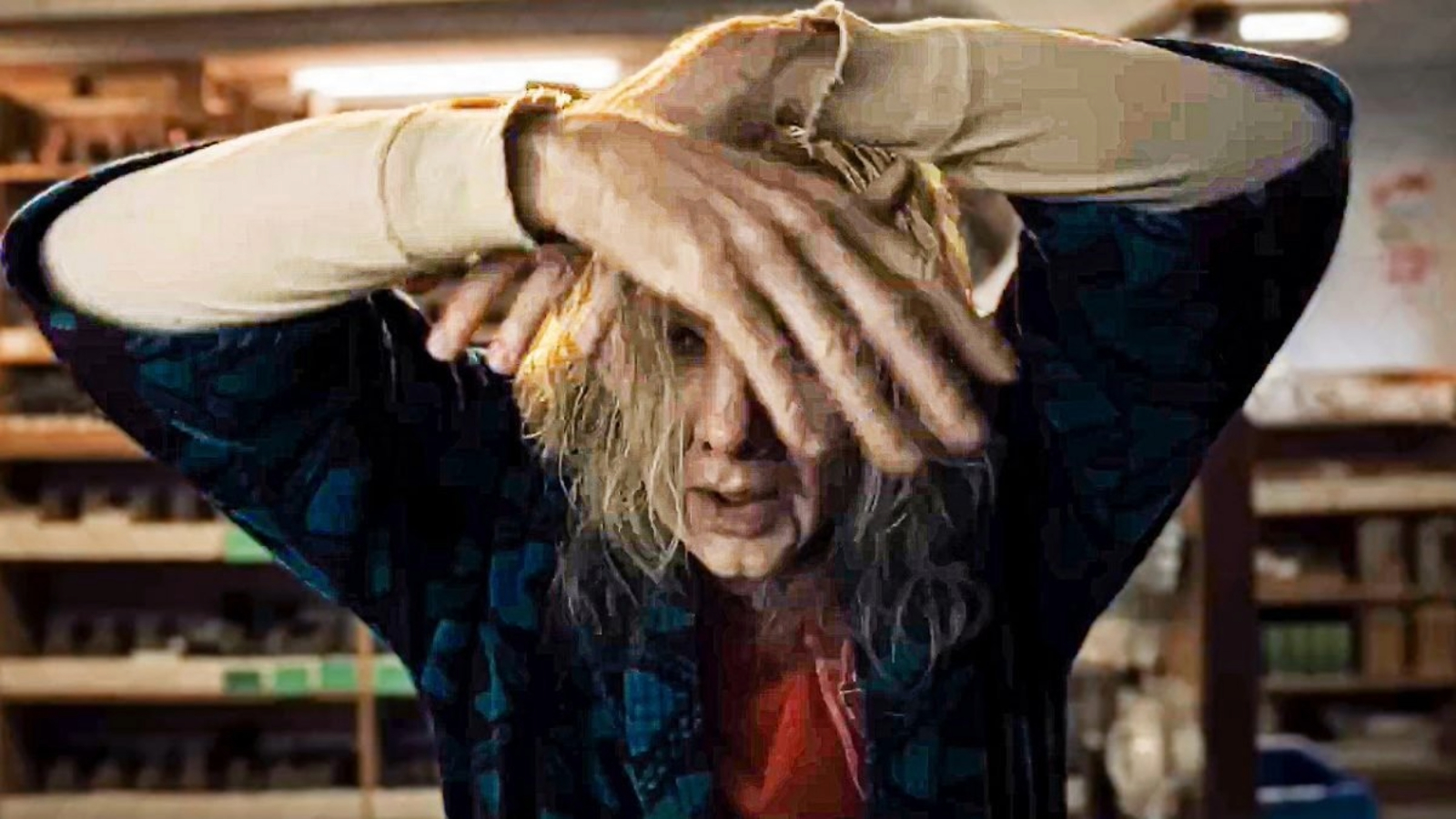
Part Two: Going Solo
Allison Burnett met Mark Evan Jacobs, a fledgling producer, actor, and businessman (not to mention the son of a predatory businessman named Irwin L. Jacobs, nicknamed “Irv the Liquidator”), through friends in the late eighties. A few years later, Jacobs made Burnett an offer: write a script about racism with a lead role for himself and he’d produce it. A few months later, Burnett delivered to Evans a hard-hitting, heartbreaking, and uncompromising screenplay about modern racism that would soon become his first solo screenwriting credit.
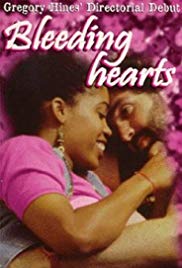
Bleeding Hearts (1994)
The script centers around Lonny Baum, a white leftist who, to quote Burnett, “despises racism and imperialism and every other sin that lies at the heart of our nation’s history.” The character is so drunk on his own moral purity that he is able to justify having an affair with a sixteen-year-old African-American girl he volunteered to tutor for her SAT’s.
The original, and more fitting, title was White Man’s Burden. The title later was stolen and used by the 1995 thriller starring John Travolta. When legal action was threatened, producers paid out $400,000 to Jacobs’s production team. White Man’s Burden became Bleeding Hearts.
When the script was finished, it was given to indie director Charles Burnett (Killer of Sheep, To Sleep With Anger) who agreed to direct it, but, due to his schedule, it meant delaying production for a year. Rather than wait, the producers decided to hire affable actor/dancer Gregory Hines for his directorial debut. Hines’s inexperience and laid-back approach as a filmmaker proved him to be a disastrous choice.
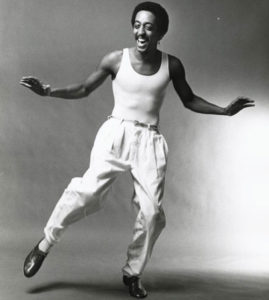
Burnett hoped that Lonny would be portrayed by an actor along the lines of a young John Cusack, someone who exhibited onscreen charm and integrity, but also had the range to exhibit the character’s many weaknesses without turning him into a villain. Instead, as per the initial deal, the part was played by the film’s producer, Mark Evan Jacobs. At the time, Jacobs’s most recognizable role was the tennis pro Ray Liotta beats to a pulp on his front lawn in Goodfellas. After Bleeding Hearts, he would never act again.
Two days into filming, the production team knew there was a problem when executive producer Ben Barenholtz (most famous for his contribution to the New York “Midnight Movie” scene in the seventies) stood up during rushes and bellowed about Jacobs: “Two! Two! He has two facial expressions!”
When, much to Barenholtz’s horror, he learned that not a single conversation had ever taken place between Burnett and director Hines, he set up a breakfast. Burnett explains:
“At breakfast, I explained to Gregory what the story was about on the macro level. Not just a tragic love story, but about how deep, unconscious forces can drive our behavior — even in a direction that directly contradicts our ideals and best intentions. I might as well have been speaking Greek. None of this had ever occurred to him.”
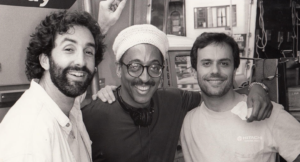
Since Allison Burnett’s screenplay for Bleeding Hearts remains entirely intact, it’s all the more disappointing that the final film, which plays like a confused and failed love story, is such a poor representation of it. The script was never meant to romanticize its protagonist’s actions. It was “an examination of the lack of self-awareness that plagues so many idealists.” Viewers of the film will never fully understand what Burnett was trying to communicate without hearing it from him:
“Bleeding Hearts is an ethical horror story. A well-meaning Lonny proceeds to do to the young girl everything that America has done to people of color for centuries. He colonizes and destroys her. He imposes his values, his language, his priorities, and, ultimately his sexuality, on a defenseless kid. The results are tragic, to say the least. It’s a tragedy that almost always occurs when one enacts the lie of the Great White Father.”

Bleeding Hearts was released to little impact or audience interest, and remains an obscure find today. While the finished product is a tonally disjointed mess, Burnett’s story and the strength of his writing still manage to shine in select moments, as do selected members of the cast, most notably Lorraine Toussaint and Rueben Santiago-Hudson.
This helped the film receive a decent notice in Variety and gain a slot in the African Diaspora Film Festival, through which it toured the country in specialty theatres.
Looking back on the experience, Burnett simply states, “My heart bleeds to this day for all the movie might have been.”
The First Burnett Epiphany
The last scene of Bleeding Hearts provides a shocking and eye-opening button to Burnett’s story, something a better-executed film might have foreshadowed more clearly beforehand. Lonny’s life is in ruins, his relationship with the underage girl having ended in the most horrible way.

He stumbles into a cab, whereupon the driver begins to share stories with Lonny about the underage prostitutes he has sex with in rural Brazil. Suddenly the driver pulls over, sets a video player onto the passenger seat, and plays him a homemade pornographic video of himself with one of the young girls. Lonny is as disgusted as he is mesmerized. At long last, Lonny gets a glimpse, as Burnett puts it, of his “own heart’s buried darkness.” A white man’s burden he will have to live with for the rest of his life.
This last minute pay-off is something those familiar with his work will recognize as a classic Allison Burnett moment. It’s not exactly an M. Night Shylaman-like plot twist– though it sometimes can be more shocking than one. It’s more of a new path, a “Joycean epiphany” that opens at the end, giving way to grander themes and resounding with disturbing ambiguities.
These elements are merely hinted at in the foundation of his stories, as Burnett takes great pleasure in springing thematic “Gotcha!” moments that mess with our minds on a much deeper level than most of Hollywood’s standard plot twists.
This is what Burnett, jokingly, once referred to as his “money shot”: when all the pieces of the story collide in its final moments. Some character motivations become painfully clear, others become more clouded, and for days afterward you examine everything you’ve seen from multiple angles, leaving you wanting more and yet strangely fulfilled at the same time.
This Burnett Epiphany will, happily, be better and more thoroughly realized in his later work.
Freckles (Unproduced)
Despite his solo credit for Bleeding Hearts, Burnett’s reputation around town was still that of a double act. While he was co-writing scripts with his partner of many years, Charlie Mattera, he never stopped working on his own solo scripts.
After writing ten scripts together, Burnett felt the pull of different genres, while Mattera wanted to stick to the crime genre that had initially brought them to Hollywood. Creative differences inevitably emerged, but it was Burnett’s first spec screenplay sale that spelled the end of their partnership.
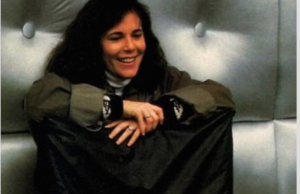
In July of 1994, Burnett sold his solo screenwriting effort, Freckles, to producer Denise Di Novi and Sony for $350,000. A “literate romantic comedy with bite”, Freckles was Burnett’s version of a Hepburn-Tracy film. The story centered around a misogynistic British stage director who tricks a feisty Hollywood starlet into starring in his Broadway production of Anthony and Cleopatra. The two bicker and fight their way through the production, but inevitably fall in love.
Unfortunately, the script went into turnaround under Sony. Several years later, Dean Devlin and Kevin Spacey rescued the script out of turnaround and hired Burnett to rewrite it for Spacey in the lead. That production also fell through, as did a later one with Meg Ryan.

Burnett remained loyal to Mattera after the Freckles sale, continuing to balance the partnership with his own solo work. Mattera, for reasons Burnett can only speculate, abruptly ended the partnership in the spring of 1995.
While the parting wasn’t exactly an amicable one, Burnett and Mattera remained professional, splitting up the ten scripts they’d written together. Burnett received sole ownership of Max. One of the scripts that Mattera retained, Shooting Large, was later produced by and starred Mattera himself under the title of Gentleman B.
While it was never produced and it indirectly brought an end to the writing partnership that started his career, Freckles remains one of the most important works Burnett has ever written. It gave him the career he now has today. He gained his independence, financial security, a name around town, and, perhaps most important, he now had the power to say no to projects he didn’t like, and to hold out for the projects he did.
Our piece on Allison Burnett will continue in Part 3 of 9 and will focus on his directorial debut, Red Meat.


